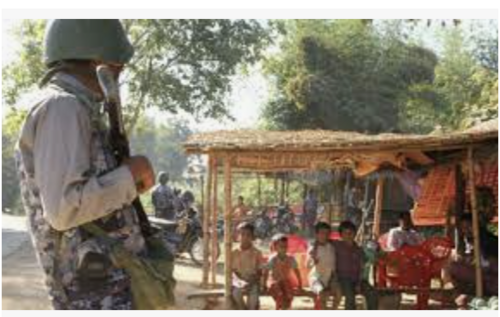Interview: Junta Administration in Myanmar’s Rakhine State ‘Has Totally Collapsed’, Says Former MP

Interview: Junta Administration in Myanmar’s Rakhine State ‘Has Totally Collapsed', Says Former MP
Myanmar’s Arakan Army (AA), a regional revolutionary group, has been increasing its influence, supplanting the Myanmar state as chief provider of administrative and judiciary functions in the Rakhine province. Symbolic of its political influence, the AA announced that the people of Rakhine state can report legal issues, such as crimes and land disputes, directly to its political branch. After the Tatmadaw seized power from Myanmar’s democratically elected government on February 1st, the state took action to reassert itself in the Rakhine state. The AA maintains hold over 80% of the Rakhine province’s state capacity, whereas the military junta’s administrative apparatus has fallen into disarray. Nothing less than complete independence is acceptable for those within the Rakhine state. As troop numbers rise and tensions simmer, the AA holds steady with the support of the people. Violent conflict is on the horizon for control over the Rakhine state.
The escalating situation in the Rakhine state reflects the tense situation across the country. The Tatmadaw and National Unity Government, the democratically elected lawmaking body from the 2020 election, have been unable to settle the conflict through political discourse. With compromise off the table, and the military using coercion to protects its interests, the country appears to be driving itself to complete ruin.
Finding a solution to Myanmar’s internal conflict will not be easy. The Myanmar military’s complete isolation from civilian sphere severely limits accountability, while its integration into the national economy provides motive for maintaining complete political control. Layered on top of this is entrenched ethnic conflict spanning back to the ethnonationalist roots of Myanmar’s post-colonial moment. However, it would be interesting to see if international pressure could coerce the Tatmadaw towards political compromise. Creating the international cohesion strong enough to coerce the Myanmar military, and whether such a plan will beget the desired results, introduce another set of confounding questions.